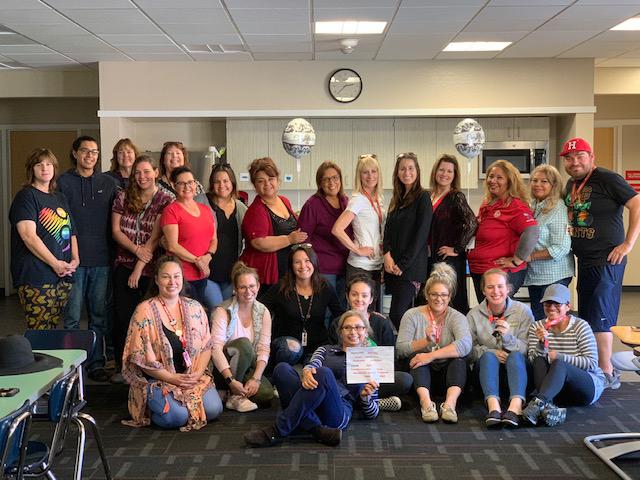Courtesy of San Benito High School:
During the 2017-2018 school year, San Benito High School enlisted a team to identify a behavioral support program to positively help students with some of the most intensive behaviors. After visiting successful programs around the region and consulting with experts from The May Institute, and The Morgan Center, QBS (Quality Behavior Solutions) safety care was selected.
“This program had the consistency and competencies to effectively prevent, minimize, and manage behavioral challenges safely, positively and with confidence,” said Dr. Paulette Cobb, the director of special education for the high school district. “The program was very appealing because it worked alongside Positive Behavior Interventions and Supports (PBIS), which can be found school-wide at SBHSD.”

Board Certified Behavior Analyst Michelle Romo and Michelle Goldstone, a teacher at San Benito High School, stepped forward to be certified to provide training in evidence-based, reinforcement strategies for staff who may encounter students who have the potential for unsafe behavior. The duo has provided more than 50 employees with initial certification and recertification since they started. The San Benito High School District staff trained in QBS have received 16 to 20 hours of instruction on how to de-escalate a frustrated individual. To continue their certification, they take part in a re-certification training annually.
Romo and Goldstone have empowered staff with strategies for not only preventing and managing behavioral challenges, but also to teach replacement behaviors.
The staff has learned to:
- Understand how and why crisis events happen, and ways in which staff might inadvertently contribute to them.
- Prevent causes using a variety of supportive strategies.
- Utilize evidence-based de-escalation strategies.
- Respond appropriately and safely to dangerous behavior.
- Intervene after a crisis to reduce the chance that it will happen again.
With their QBS training schedule, they have trained teachers, instructional assistants, yard supervisors and bus drivers. This means staff members in many areas around campus are trained in the same skills and strategies to support students in crisis. Staff are taught to prevent behavioral challenges, but if they occur, they have the skills to manage the crisis.
“Most importantly, they are taught to change the behavior through the reinforcement of appropriate behaviors, building momentum behaviorally, and shaping positive behaviors,” Cobb said.
Other programs will redirect behaviors, set limits and offer solutions to stop the behavior for the moment, but not in the long run.
“There is both data and observations that support that our students are benefiting from this approach,” said Cobb. “When you are working in the classroom or on campus, you see happier students and staff. Our team is working together to support each other making positive changes on behalf of our students. I am very proud to see our staff confidently stepping in to support students in such a proactive way.”




